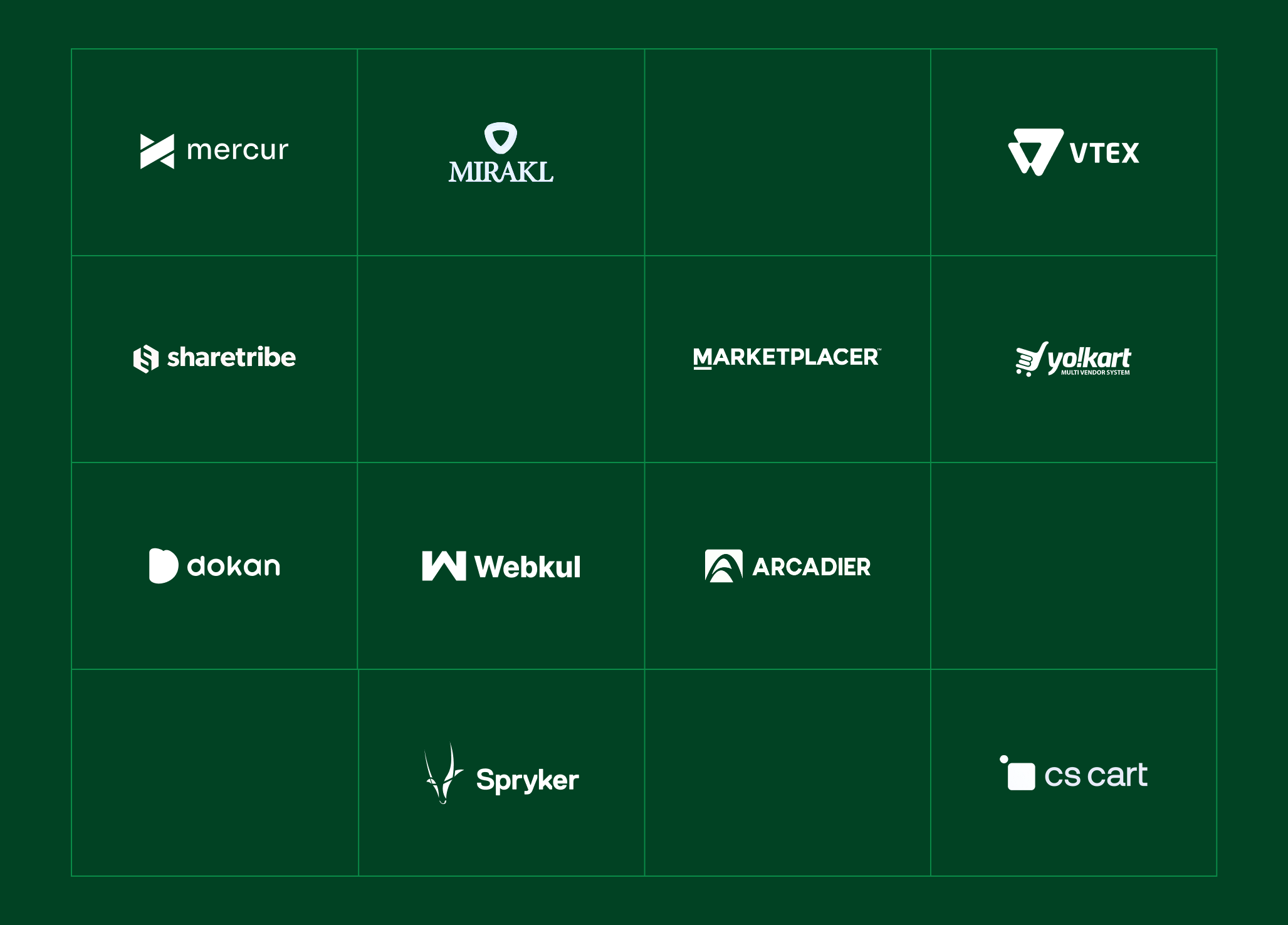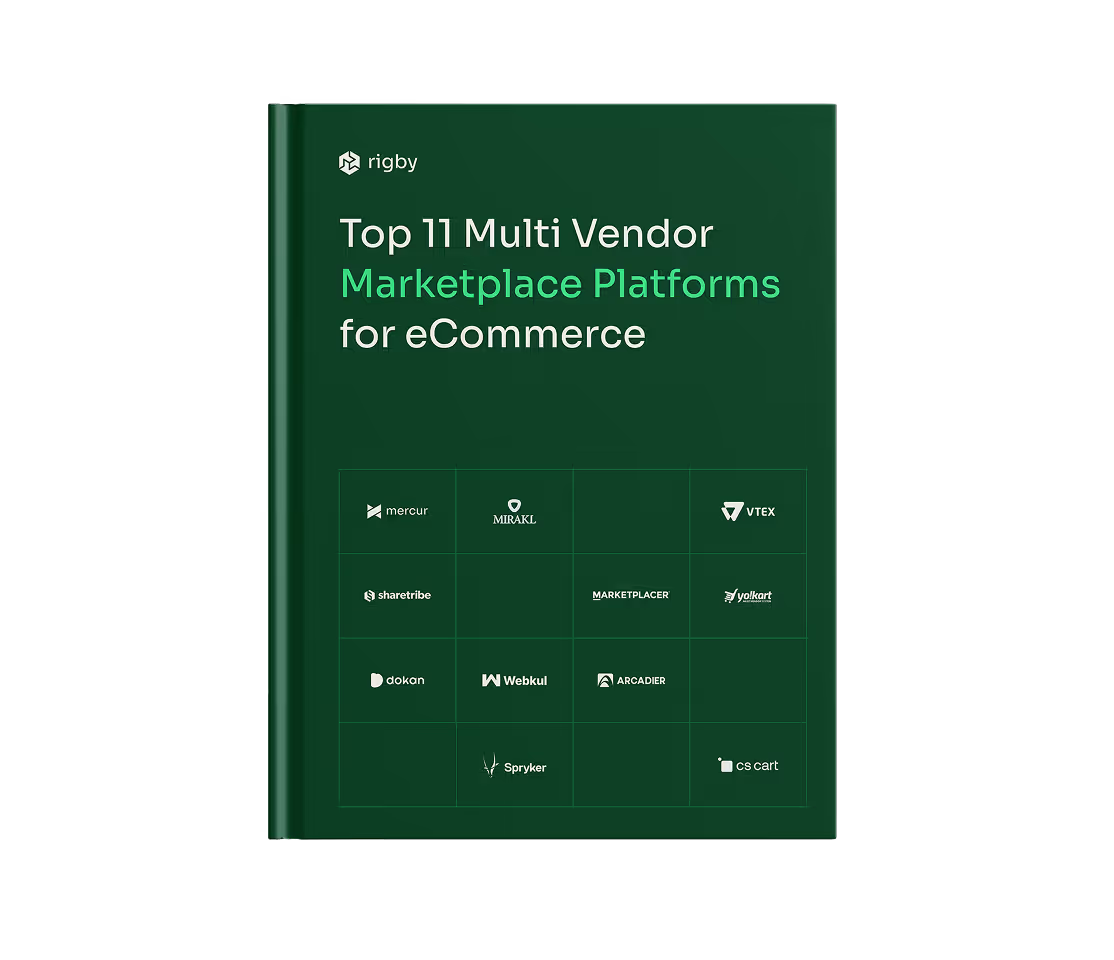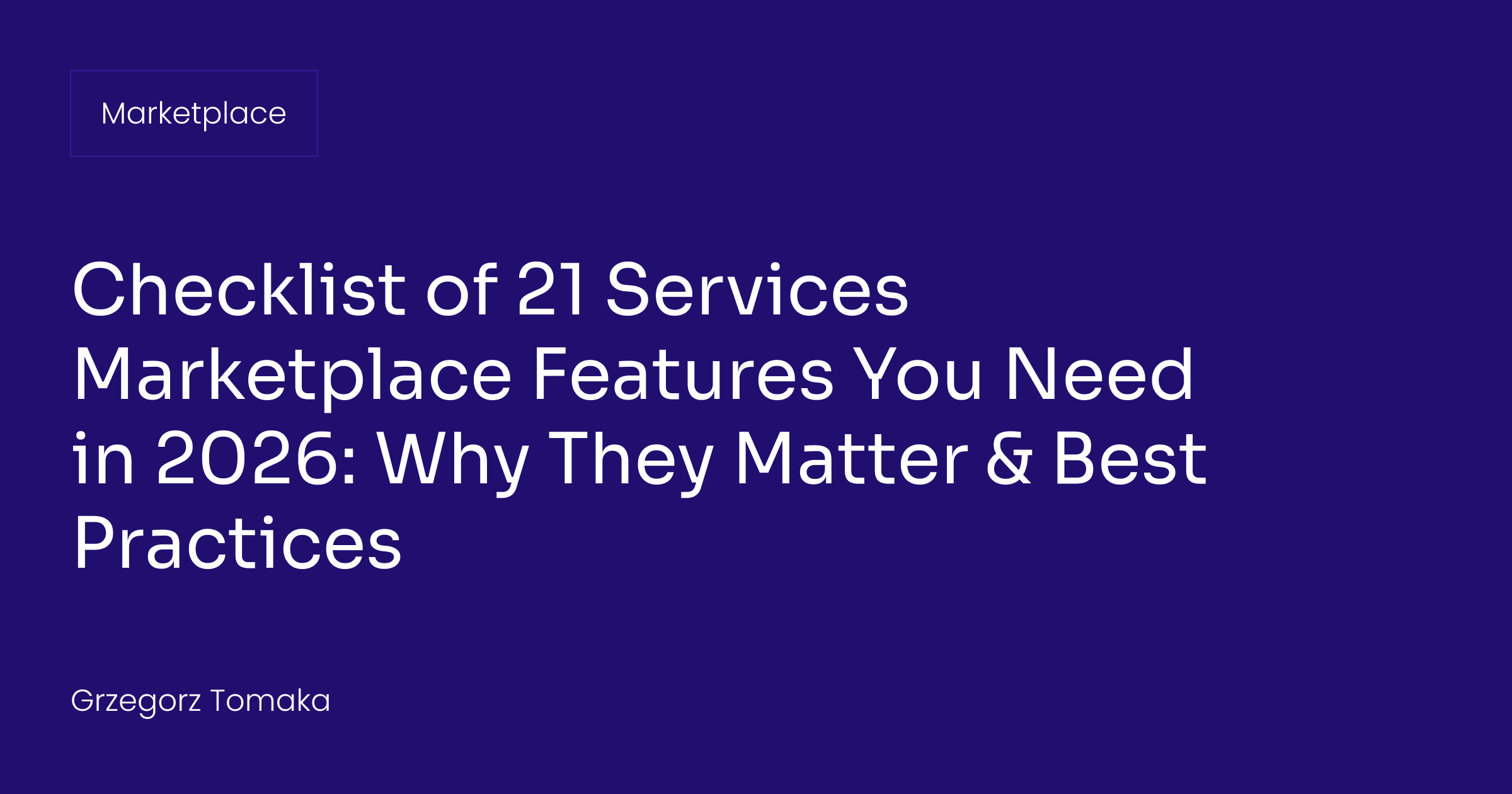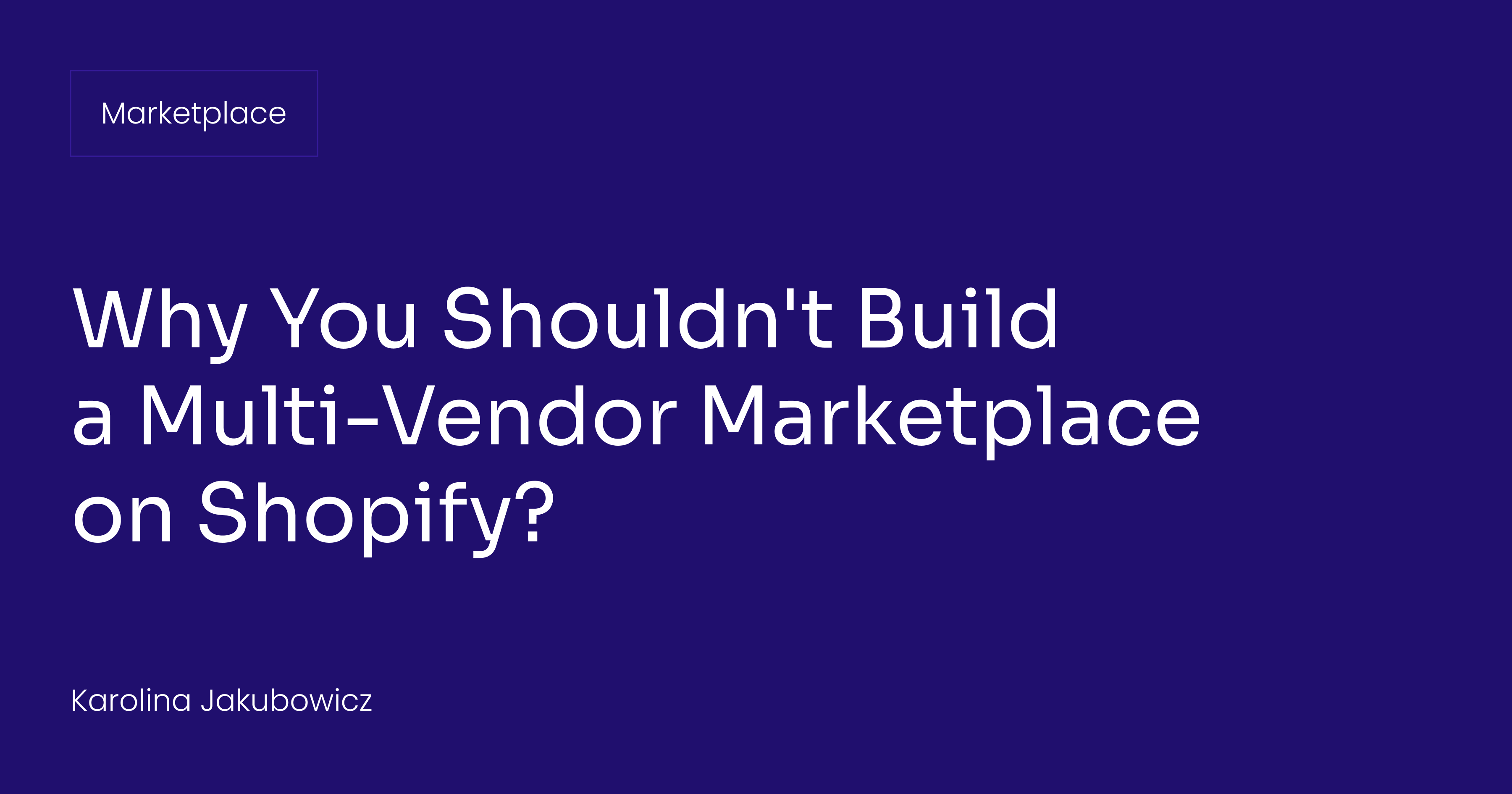Evaluate the best multi-vendor marketplace platforms on the market.
What is a multi-vendor marketplace?
A multi-vendor marketplace is an eCommerce environment where multiple independent merchants can offer their products or services through a single, shared platform. Rather than operating individual online stores, vendors benefit from centralized infrastructure and access to a broader customer base.
While each marketplace vendor remains responsible for managing their own listings, pricing, and inventory in the seller dashboard, the marketplace owner handles the overall platform - including infrastructure, payments, commission rules, and user experience.
What you'll find inside this eBook
- What is the multi-vendor marketplace software, and its types
- Critical features for admins, vendors, and buyers that drive marketplace success
- Detailed framework for comparing marketplace software based on pricing, customization, technology, and more
- Expert analyses of the top 11 multi-vendor marketplace platforms
- Tips to choose the right online marketplace platform

Why does choosing the right multi-vendor platform matter more in 2026?
For many eCommerce businesses, the primary motivation to launch their own online marketplace is to drive more revenue from an already established digital presence. The marketplace website earns revenue mainly through commissions on each transaction, aligning the platform’s success with that of its vendors while enabling growth.
Despite tens of tools claiming to support the multi-vendor marketplace model, the reality is more limited. Most of them are just eCommerce platforms with limited multi-vendor add-ons, not true marketplace software built to handle complex operations. Meanwhile, enterprise solutions often come with prohibitive license costs, plug-ins, and legacy stacks, which introduce integration limitations that restrict growth.
By reading this eBook, you will gain a clear understanding of top multi-vendor eCommerce marketplace platforms and discover how to:
- Reduce vendor lock-in and lower long-term TCO
- Prioritise marketplace features for admins, vendors, and buyers
- Quickly spot gaps in your platform's capabilities
- Decide which platform better matches your growth plan
For a deeper dive into this model, see Section 1 of the guide!
Who is this guide for?
- Founders deciding between speed-to-market and long-term TCO.
- CTOs evaluating technical fit, features, and integration surface.
- Product Leaders shortlisting platforms to match business model and roadmap.
- Operations & Marketplace Managers who need to understand vendor and buyer flows.
- Procurement Teams who must compare pricing models and licensing tradeoffs.
Comparison criteria to discover the best marketplace software
Below are the core dimensions that represent a technical and operational lens for evaluating how well each solution fits your business model.
Pricing model
How is the platform priced - free, licensed, subscription-based, or custom enterprise agreements? We evaluate transparency, flexibility, and how the pricing structure scales with usage. It's also important to account for transaction fees, which may apply per order or per payout, and can significantly affect margins as your marketplace scales.
Distribution model
The distribution model refers to how the platform is deployed and who controls the codebase, data, and infrastructure. Is the solution SaaS, self-hosted, open-source, or hybrid? Does the platform offer full data ownership and exportability, or does it create vendor lock-in?
Business model support
What marketplace models and industries does the platform support? We examine how well it handles B2B, B2C, or C2C logic.
Technology
What is the underlying system architecture and technology type? Modern, well-documented, API-first platforms are typically easier to integrate, extend, and operate in multi-service environments.
For whom
Is the platform built for startups, SMBs, mid-market, or enterprise clients? We consider how much support and customization are needed.
Customization level
To what extent can the platform be tailored? How easy is it to add new features or enhancements? We describe the ability to support industry-specific backend logic, custom modules, and UX.
Limitations
What technical or business constraints are built into the platform, such as high setup complexity or potential cost growth? Identifying these hidden boundaries early helps avoid costly migrations later.
Key features (Admin, Vendor, Buyer)
What essential features are supported out-of-the-box for key roles in the marketplace ecosystem? We check how well each platform supports the needs of operators, sellers, and shoppers.
Storefront customization capabilities
Beyond templates: how much control does the platform offer over UI components, branding, and layout? Can teams build “pixel-perfect” experiences without workarounds?
Security & customer support
What security measures and compliance certifications are in place? What level of support (e.g., SLAs, CSMs, support tiers) is offered for critical incidents?
Third-party systems
How easily can the platform be connected to your existing system, e.g., ERPs, CRMs, PIMs, logistics providers, or payment systems? We evaluate the availability of open APIs and prebuilt connectors.
Explore more in Section 9 of the eBook!













